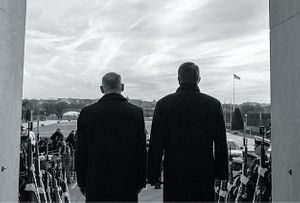Some weeks it seems that the Special Inspector for Afghanistan Reconstruction (SIGAR) John Sopko is a broken record: repeating the same damning reports that U.S. taxpayer money is being spent poorly in Afghanistan. The most recent case is no different.
SIGAR was established by Congress in 2008 to provide objective oversight of how reconstruction funds are being spent, independent of the Department of Defense, Department of State, USAID, or whichever U.S. government body was spending the money. The quarterly report released today is the 27th such report.
In the October quarterly report, SIGAR highlighted the expensive disaster that is poppy eradication in Afghanistan. Ankit Panda wrote that the time:
…Afghanistan has once again demonstrated that poppy production is not going anywhere; this time, the total area used for poppy cultivation in Afghanistan has hit an all-time high. Stemming the production of poppy in Afghanistan was a major strategic objective for international forces in Afghanistan over the last 13 years. The United States alone spent $7.6 billion on efforts to stem poppy production.
January’s report made news because it attacked the sudden classification of data that had previously been unclassified. In particular, the Department of Defense initially refused to release data relating to the Afghan National Security Forces (ANSF). Days later Defense reversed its decision and released most of the requested data to SIGAR. The data, however, revealed that there were “accounting errors” in the reporting of ANSF numbers provided between April and October 2014.
Not surprisingly, the most recent report highlights in its first section that questionable data relating to the ANSF undermines the mission and calls into question whether the money was well-spent:
Without reliable data on ANSF strength, the United States cannot determine whether the billions it has spent on recruiting, training, equipping, and sustaining the ANSF since fiscal year (FY) 2002 has been spent properly, or accurately calculate what additional funding may be needed.
Accurate counts of troops present for duty are also vital to commanders at all levels as a basic indicator of ability to carry out tactical and operational missions
The report notes that a byproduct of the drawdown is that SIGAR and other federal agencies will increasingly find it difficult “to conduct in-person checks of ANSF personnel data or make direct observation of other activity.”
Ironically, the question of SIGAR personnel numbers brought to the surface tension between the oversight body and the State Department this week. Sopko, testifying before the House Committee on Oversight and Government Reform’s national security subcommittee on the ANSF data problem, mentioned that in the past week he was informed by the U.S. Embassy in Kabul that SIGAR must cut its staffing at the mission by 40 percent, from 42 to 25 positions, by next summer. Sopko said the number was “arbitrary” and developed without SIGAR’s input.
As reported by Foreign Policy’s Situation Report, this did not sit well with State, which through an unnamed official says that SIGAR was included in the “beginning of a dialogue on what functions and positions must be kept, not a decision to cut.” This is not the first clash between SIGAR and the government bodies often under its microscope — Sopko is known to be outspoken.
There is one bright spot, however, pointed out in the most recent report’s introduction. An investigation found corruption in the award of an Afghan Ministry of Defense fuel contract. After briefing President Ashraf Ghani on the matter in February, Ghani immediately suspended defense officials involved in the contract award, cancelled the contract in its entirely, threatened the contractors with debarment, and set up an investigation into the issue.
“Such rapid and decisive action,” the new report praises, “sends a strong signal in a country routinely rated as one of the world’s most corrupt.”
In his testimony Wednesday, Sopko commented that “we appear to have a willing partner in the new National Unity Government of President Ashraf Ghani and Chief Executive Officer (CEO) Abdullah Abdullah.”

































